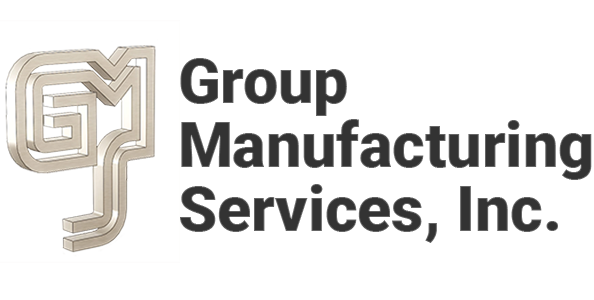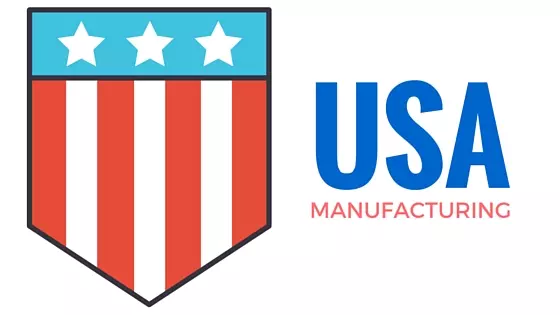
One moment please...

One moment please...
Within this dynamic environment, precision sheet metal fabrication has emerged as a vital component, playing a crucial role in the production of diverse goods across multiple industries.
The journey of US manufacturing has been marked by ingenuity and adaptability.
From the early days of the Industrial Revolution to the present era of advanced technologies, American manufacturing has continually evolved to meet the demands of a changing global landscape.
This evolution is intricately linked to the development and refinement of processes such as precision sheet metal fabrication, which has become synonymous with the production of components that demand not only structural integrity but also precision down to the minutest detail.
As we delve into the pages of US manufacturing history, we unravel a story of growth, innovation, and a relentless pursuit of perfection.
The next sections will explore the historical evolution of manufacturing in the United States, shedding light on the pivotal role played by precision sheet metal fabrication in this remarkable journey.
Precision sheet metal fabrication is a specialized process that involves the cutting, bending, and assembling of sheet metals to create intricate components with high accuracy and quality. This article explores the intersection of US manufacturing and precision sheet metal fabrication, highlighting the integral role this process plays in shaping the industrial narrative of the nation.

The history of manufacturing in the United States is a rich tapestry woven with threads of industrial revolutions, technological advancements, and economic transformations.
Each era has brought new challenges and opportunities, shaping the landscape of US manufacturing and influencing the methods employed in precision sheet metal fabrication.
The 19th century witnessed the birth of modern manufacturing in the United States.
The Industrial Revolution set the stage for the mass production of goods, transforming traditional craftsmanship into mechanized processes.
Factories emerged, powered by steam engines and later electricity, marking a shift from agrarian economies to industrial powerhouses.
The 20th century brought about significant changes with the impact of both World Wars.
The manufacturing sector played a pivotal role in supporting wartime efforts, leading to innovations in production processes.
Precision became a crucial factor, especially in the fabrication of military equipment, and technologies like precision sheet metal fabrication gained prominence.
The post-World War II era saw an unprecedented economic boom and a surge in technological advancements.
Manufacturing technologies evolved, with a focus on automation and computerization.
Precision sheet metal fabrication benefited from these advancements, allowing for higher accuracy and efficiency in creating complex components.
In recent decades, US manufacturing has navigated the challenges of globalization.
While facing competition from international markets, American manufacturers have leveraged technological integration to stay at the forefront.
Precision sheet metal fabrication has embraced computer numerical control (CNC) machining, laser cutting, and advanced robotics, ensuring the sector’s continued relevance in the global market.
As we trace the historical milestones, it becomes evident that the evolution of US manufacturing and precision sheet metal fabrication is a story of resilience and adaptation.
In the following sections, we’ll delve deeper into the contemporary landscape, exploring the technologies and trends that define modern manufacturing in the United States.
Precision sheet metal fabrication stands as a cornerstone in the diverse landscape of US manufacturing, offering unparalleled versatility across multiple industries.
From aerospace to automotive, electronics to healthcare, the precision and adaptability of sheet metal fabrication make it a vital component in the production of various goods and components.
In the aerospace industry, where stringent standards for quality and precision prevail, sheet metal fabrication plays a pivotal role.
The production of aircraft components, structural elements, and intricate parts demands the exacting specifications achievable through precision sheet metal processes.
The lightweight yet robust nature of fabricated metal components contributes to the overall efficiency and safety of aerospace systems.
The automotive sector relies heavily on precision sheet metal fabrication for the manufacturing of vehicle components.
From body panels to structural elements, sheet metal ensures a balance between durability and weight, crucial for achieving fuel efficiency and safety standards.
The ability to produce complex shapes and designs makes sheet metal fabrication an indispensable part of automotive innovation.
The electronics industry benefits significantly from the precision offered by sheet metal fabrication.
The production of enclosures, connectors, and intricate parts for electronic devices requires meticulous attention to detail, dimensional accuracy, and the ability to work with various metals.
Sheet metal fabrication provides the necessary precision to meet the demanding requirements of the electronics sector.
In the healthcare industry, where precision is synonymous with safety and efficacy, sheet metal fabrication contributes to the manufacturing of medical equipment.
From the casing of diagnostic devices to components of life-saving machinery, the ability to produce custom, high-precision parts is essential in advancing medical technology.
Sheet metal fabrication extends its importance to the energy sector, contributing to the production of components for renewable energy systems, power generation, and infrastructure projects.
The versatility of sheet metal allows for the creation of components that withstand the rigors of diverse environmental conditions, ensuring the reliability of energy systems.
In essence, precision sheet metal fabrication is a linchpin in US manufacturing, serving as the foundational process that enables innovation and progress across a spectrum of industries.
The next section will delve into the global competitiveness of US manufacturers and the role of precision sheet metal fabrication in maintaining and enhancing this competitiveness.
The future of manufacturing is here, and it’s not just about building products, but about building communities, creating jobs, and sustaining the American dream.” – Jay Timmons

In conclusion, precision sheet metal fabrication emerges as a key driver in propelling US manufacturing to new heights.
Its widespread applications across industries such as aerospace, automotive, electronics, healthcare, and energy showcase its indispensable role in the production of vital components and systems.
The ability to provide versatility, precision, and efficiency makes sheet metal fabrication a linchpin for innovation and progress in the manufacturing landscape.
As we navigate the dynamic landscape of manufacturing, precision sheet metal fabrication remains at the forefront of technological advancements.
Embracing this future entails recognizing the significance of precision and adaptability in the manufacturing process.
US manufacturers are poised to lead this charge, leveraging the capabilities of sheet metal fabrication to create products that define the future.
Explore the possibilities of precision sheet metal fabrication by partnering with excellence.
Our commitment to quality, innovation, and precision sets us apart in the manufacturing realm.
Contact us today to embark on a journey of manufacturing excellence, where your ideas meet the precision of sheet metal fabrication, shaping a future defined by innovation and quality.
Elevate your manufacturing standards with precision sheet metal fabrication.
Contact us now to bring your ideas to life.